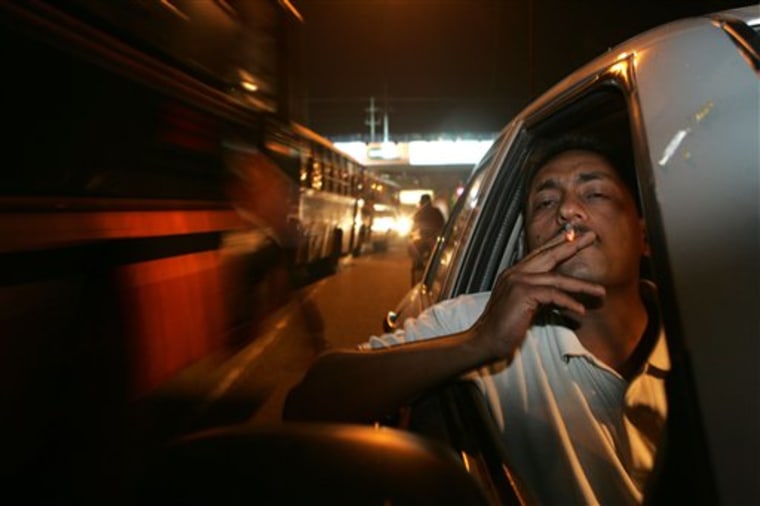A court has banned smoking and cell phone use while driving in India's capital in what is believed to be the first measure of its kind in any major city worldwide.
Declaring "New Delhi roads dangerous to human life," the city's High Court imposed new measures aimed at deterring habitually bad drivers, including the smoking ban and a prohibition on using mobile phones while behind the wheel.
"Anything that distracts the attention of driver is dangerous. The human mind cannot do two things simultaneously," said New Delhi traffic commissioner Qamar Ahmed, welcoming Monday's ruling, which goes into effect April 9 and only covers New Delhi.
Those caught smoking behind the wheel would pay $32, a heavy fine by local standards. Offenders caught more than five times would have their license revoked, the court said. The same fines apply to using a cell phone and the less well-defined offense of "dangerous driving."
Under the new measures, a motorist running a red light will pay $13, compared with the current $2.50.
The new penalties came in an order issued by Justices Swanter Kumar and H.R. Malhotra, who were acting on their own as the death toll on city roads rose to more than 1,900 annually. Existing traffic laws, which have not been updated since their introduction 20 years ago, are going largely ignored.
"Immense influx of light and vehicular traffic has made New Delhi roads dangerous to human life," the two judges were quoted as saying by The Times of India. "The gravity of offenses like rash driving and red-light jumping has lost their impact because of low fines."
Traffic has steadily worsened in recent years in New Delhi, where more than 14 million people and 4 million vehicles jostle for space on the roads. That's despite some 2 million people commuting daily on a metro rail introduced in parts of the capital in 2002.
"The court order will definitely make a dent. At present, motorists don't mind paying small fines and continue violating traffic rules," New Delhi police spokesman Rajan Bhagat said.
It's not the first time New Delhi's courts have played an activist role. A 1998 court order eventually forced all the city's public transport to switch from gasoline and diesel to compressed natural gas to cut pollution.
